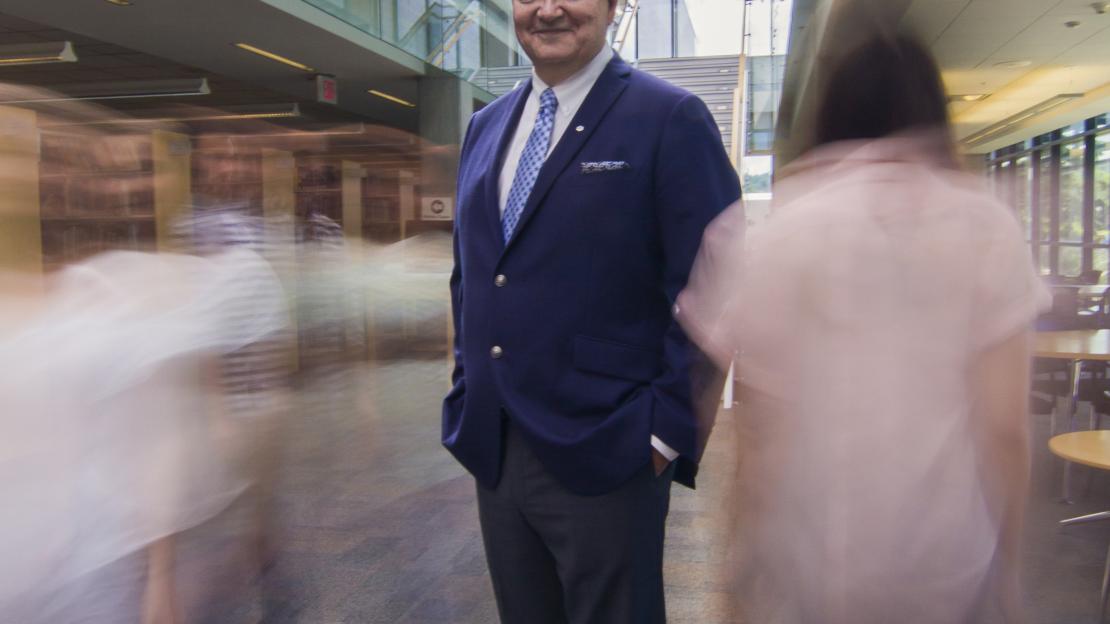When Mike DeGagné was a BSc student at U of T Scarborough, he didn’t know that he would lead a life of service, contribute to the Indigenous community and inspire thousands of students. He is now president and vice-chancellor of Nipissing University — the first Indigenous university president in Canada.
Years ago, after graduating in biology, DeGagné worked in a field that didn’t involve Indigenous people much at all. Then — he was approached by an Maggie Hodgson, who has been a mentor to him.
“With an education comes an obligation,” she told him. She said the community needed more people working in important areas such as health and wellness, and he should put his talents there.
“She set up a meeting,” he recalls, “for me to meet some people to facilitate this. And then I started working on health programs with the government.” He eventually became director of First Nations and Inuit Health Programs for Health Canada.
A few years later, Hodgson tapped DeGagné on the shoulder again, and he soon began managing Indigenous programs. He became the founding executive director of the Aboriginal Healing Foundation, a national organization that addressed the legacy of residential schools.
Through the years, DeGagné has served on boards and committees in the health sector, and worked with governments in roles such as senior negotiator with Indian and Northern Affairs Canada. He is also a lecturer, nationally and internationally, on Indigenous governance and reconciliation.
Along the way, the UTSC alumnus has added new credentials, including a Masters degree in Administration, a PhD in Education — focusing on Aboriginal post-secondary success — and a Master of Laws.
DeGagné has received honours including the Order of Canada, the Order of Ontario and the Queen Elizabeth II Diamond Jubilee Medal.
When asked, he says his proudest accomplishment is his work with the Aboriginal Healing Foundation. “I was fortunate to work with wonderful people who were so committed. We were working together as friends and colleagues, helping people, helping residential school survivors. It was very gratifying,” he says quietly.
Where does his sense of community stem from? He speaks Hodgson. “She was someone I trusted. She gave me guidance. She was my mentor.” DeGagné, who comes from Fort Frances in northwestern Ontario, adds that his mother was a nurse and his father a teacher.
“I was always a joiner, growing up.” Then he smiles at an old joke in public service circles. “I guess I’m a member of that special group, STP (same 10 people).”
“We tell young people, ‘It’s great that you’re working, but don’t forget about community.’” He adds that boards, committees and volunteerism “are for everyone.”
At Nipissing, he says, “We tell young people, ‘It’s great that you’re working, but don’t forget about community.’” He adds that boards, committees and volunteerism “are for everyone.”
Personally, DeGagné feels things have come full circle — that he’s the one being inspired now, by the Nipissing students. “Every September, that energy is part of a cycle and a renewal for them,” he says, “and for me.”
